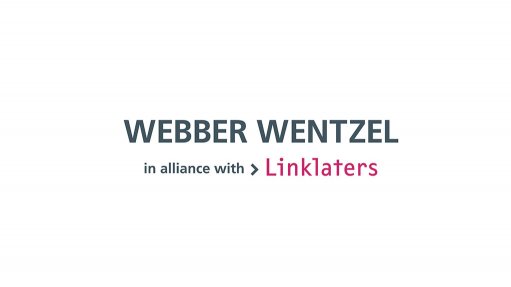
A new Code of Good Practice on the Prevention and Elimination of Harassment in the Workplace has become effective. The new code will require a total overhaul of sexual harassment and harassment policies that employers currently have in place as well as how these policies are implemented.
The Code of Good Practice on the Prevention and Elimination of Harassment in the Workplace (new Code) became effective on 18 March 2022, replacing entirely the Amended Code of Good Practice on the Handling of Sexual Harassment Cases in the Workplace (old Code). The new Code gives effect to South Africa's recent ratification of the International Labour Organisation Convention 190 and provides a framework and accompanying guidelines for employers and employees to attain a workplace free of harassment and violence.
These developments will require a total overhaul of sexual harassment and harassment policies that South African employers currently have in place as well as how these policies are implemented. Any policies that: fail to address persons who perpetrate harassment or those subjected to it; fail to grapple with the various forms of harassment that can occur in the workplace and outside of the workplace; and which lack the necessary information regarding the more expansive test for sexual harassment.
The provisions of this new Code are broader than the old Code with far-reaching effects. Most notably the new Code:
- addresses more than sexual harassment and includes gender-based violence and harassment, bullying, and racial, ethnic or social origin harassment;
- accounts for new ways of working as it identifies the need to address harassment outside the workplace, particularly, where employees are working virtually from their homes or any place other than their physical workplace;
- acknowledges victims of harassment, include women, men, persons who are part of the LGBTQIA+ community as well as other vulnerable persons who have poor access to labour rights;
- extends the perpetrators and victims of harassment to persons who are volunteers, persons in training, customers and clients and other persons who have dealings with the business, which could extend beyond the employer-employee relationship; and
- clarifies the test for sexual harassment specifically. The old Code merely indicated the factors which need to be taken into account when assessing whether sexual harassment has taken place, however, the new Code goes further to indicate the type of assessment that needs to be made, providing that sexual harassment “is unwelcome conduct of a sexual nature, whether direct or indirect, that the perpetrator knows or ought to know is not welcome”. It envisions that there ought to be subjective and objective components to the test for sexual harassment – an approach consistent with that adopted by the Courts. The subjective assessment is whether the sexual harassment “may be offensive to the complainant, make the complainant feel uncomfortable or cause harm or inspire the reasonable belief that the complainant may be harmed”. The objective assessment, in relation to all harassment including sexual harassment, is an evaluation as to whether a reasonable person in the circumstances of the complainant would have held similar views regarding the harassment complained of. The latter test requires a careful assessment, during the investigation phase into the complaint of sexual harassment, as every case of sexual harassment should be assessed on a case-by-case basis and what may constitute harassment for the complainant in question, may not constitute harassment for another person. Therefore, employers should err on the side of caution when applying this component of the test.
The new Code also alludes to the creation of an approach to dealing with harassment cases that is not rigid and is more holistic. Such an approach requires the employer to consider the implementation of: better education and information regarding harassment, particularly sexual harassment; training as to how to properly deal with and counsel complainants of sexual harassment; an inquiry into the sexual harassment that is inquisitorial rather than adversarial; and a workplace environment that is aware of harassment and its effects and that does not enable perpetrators to harass, but rather enables complainants to speak up without fear of reprisal.
Given the prevalence of all forms of harassment in the workplace, employers must ensure that they take active steps to prevent and eliminate harassment in the workplace lest they become liable for damages in terms of vicarious liability. This risk of such liability is greatly increased under the new Code particularly for those employers who neglect to update their policies and practices in this regard.
Employers need to cultivate a workplace culture that focuses on educating all employees on the seriousness of harassment in the workplace and training persons in the human resources department on how to appropriately deal with complainants in cases of harassment striving toward a safe and respectful work environment, free of discrimination for all employees.
Written by Pamela Stein, Partner, Joani van Vuuren, Senior Associate & Jamie Jacobs, Associate from Webber Wentzel